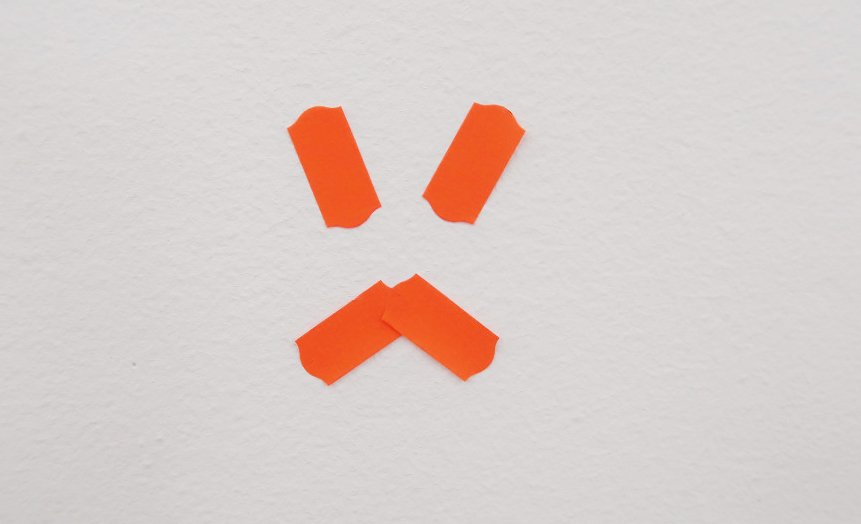
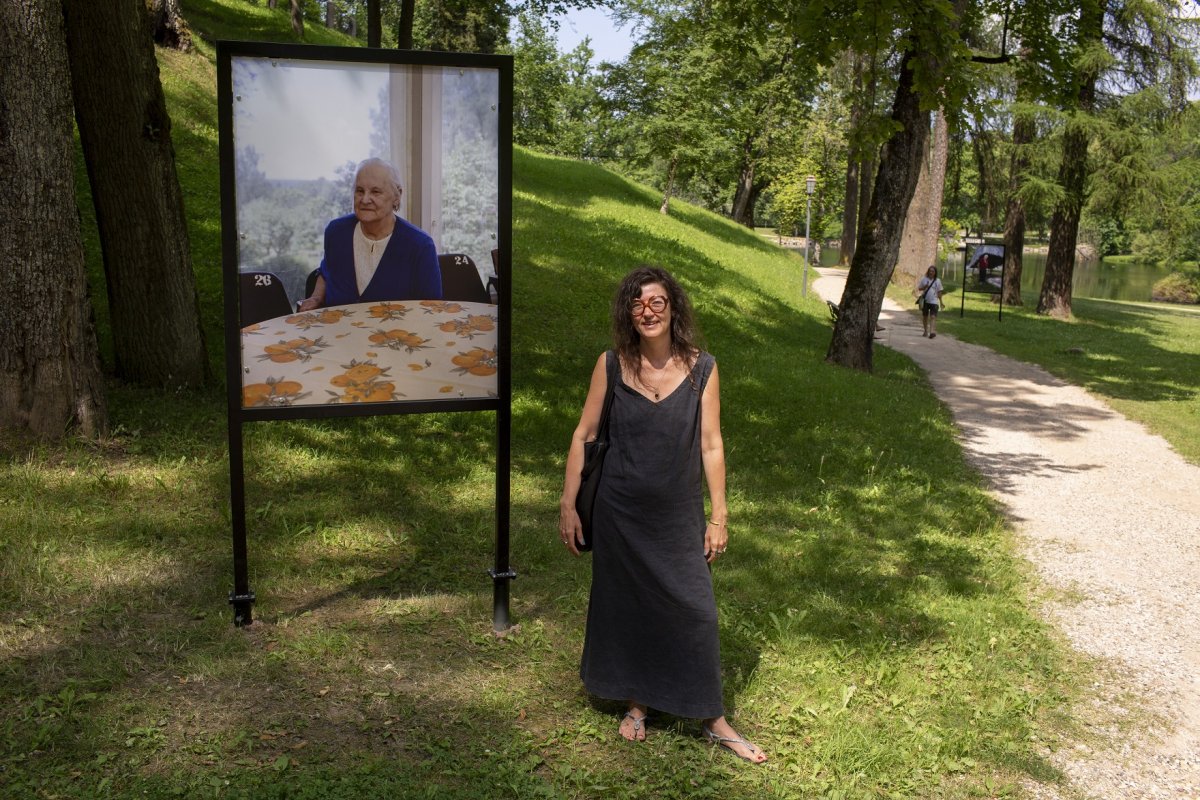
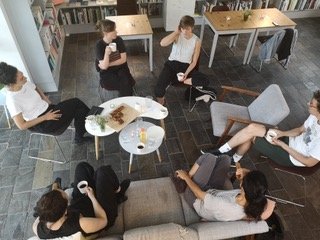
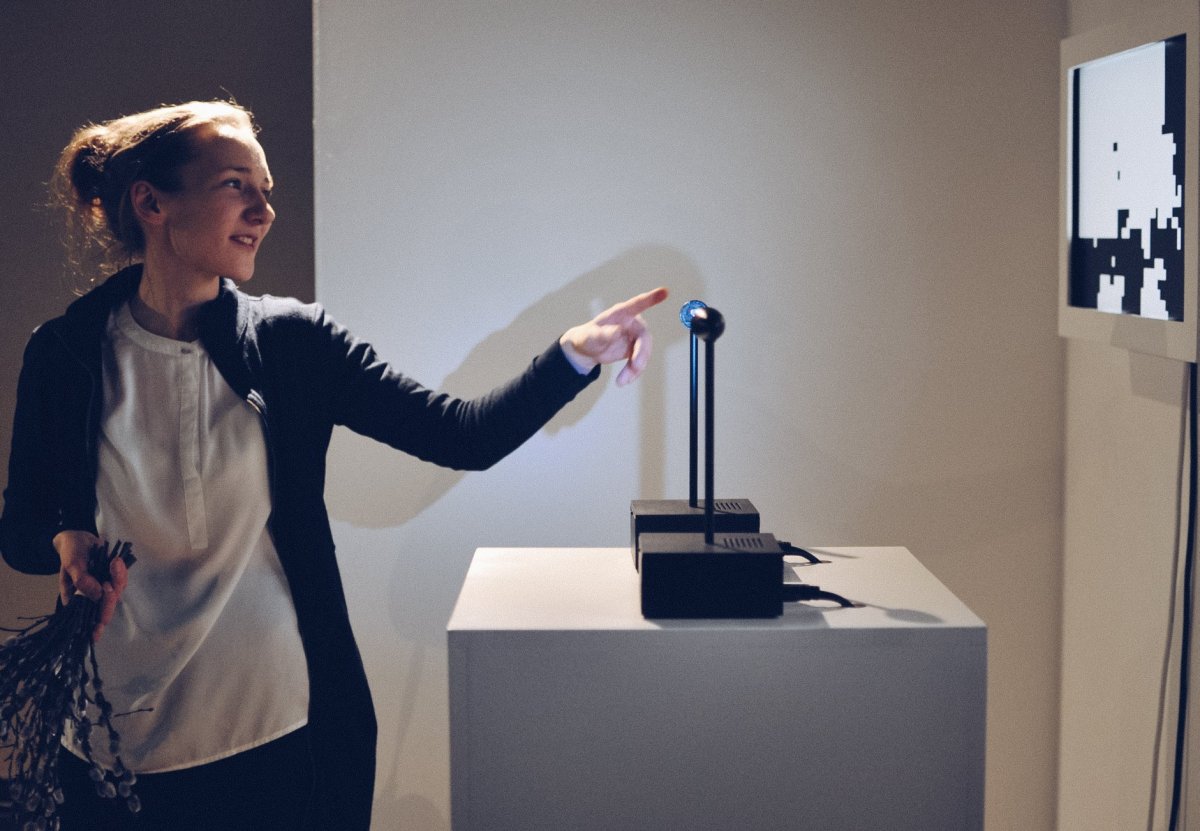
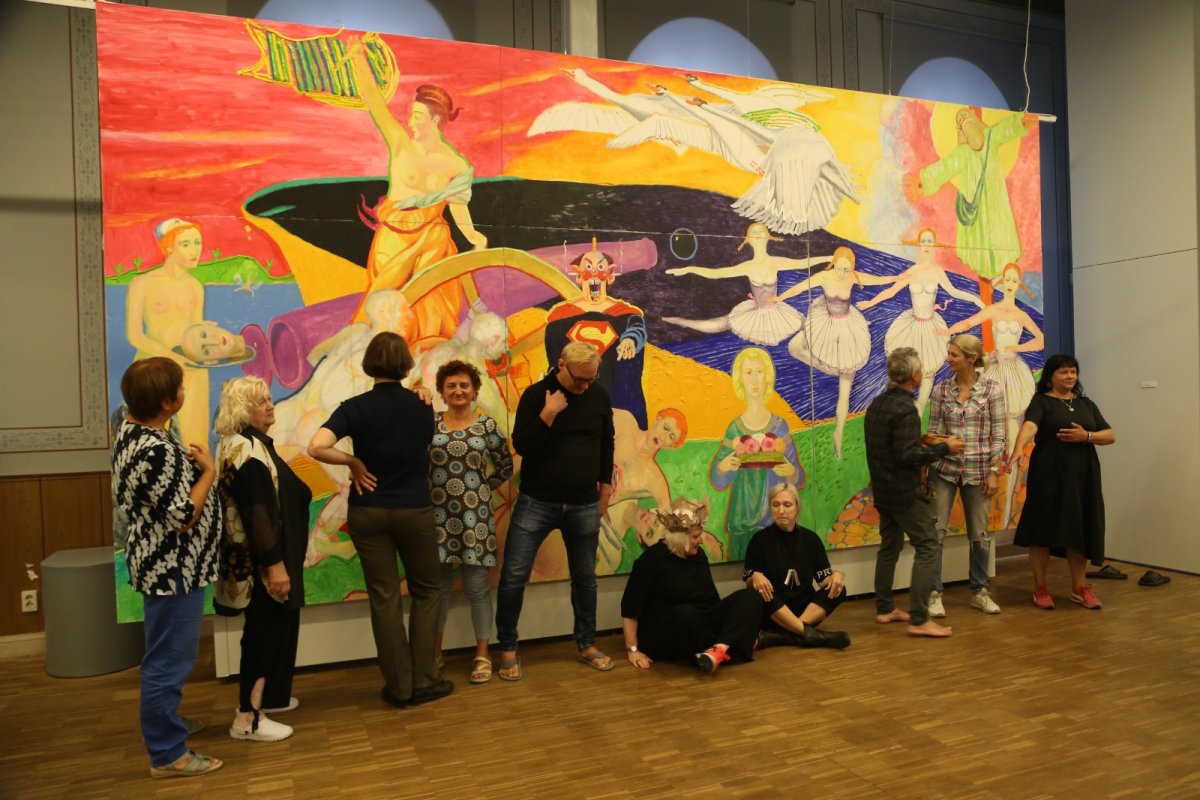
The International Summer School Art Mediation as Conversation took place August 5-9 in Kuldīga. This is the eighth annual iteration of the LCCA summer school, and like the others it took place in collaboration with the Kuldīga Artists' Residence. The summer school is part of a larger project MEM Agents of Change – dedicated to art mediation and carried out by the Latvian Centre for Contemporary Art in close cooperation with Cultura Saatio (Finland), Fonds atvērtai sabiedrībai DOTS (Latvia), Tallinna Linnamuuseum (Estonia) and Tensta konsthall (Sweden).
On the first day of the summer school, the lecture The Artist as Mediator. A Conversation About Making Socially-conscious Works of Art was presented at the Kuldīga Artists’ Residence at Pils iela 2 by artist Inga Erdmane. On Friday and Saturday (August 6-7), the International Program for mediators from the four participant countries took place at the Kuldīga Art House on 1905. gada iela 6. The artist, curator and manager of mediation programs Daniela Ramos Arias from Bergen, Norway, held the first lecture/creative workshop of the program. Based on the artist’s mediation programs developed during the Bergen Assembly and at Hordaland Kunstsenter, mediators reflected upon the things they want to learn and what they want to teach. Three mediation strategies on particular topics were worked out during the workshop.
Meanwhile, artist/researcher Emmeli Person, who has experience in developing mediation programs for the INDEX Swedish Contemporary Art Foundation in Stockholm, Sweden, was in charge of Saturday’s program. She had prepared the lecture titled Critical documentation: How to look at the past and not re-produce the future for the art mediators. It was an audio task dedicated to critical documentation and the ways in which art institutions document the process of educational programs. Mediators from each country created a section for www.bigartspaceofyourchoice.com, a website created for the project.
As part of the program, mediators also attended a conversation exercise at the Democracy Café, a part of the Democracy Festival in Kuldīga. They learned more about dementia (lecturer – psychiatrist Daniels Šamburskis) and data visualization (lecturer Paula Vītola), which were of use later on as they held workshops dedicated to data recipes together with artist Anna Priedola.
For the conclusion of the summer school, the mediators and the artist held an open creative workshop, Dairy Diaries Dementia Data Recipes, for Kuldīga locals and visitors. They learned representing data on dementia using food products, in order to make statistics easier to digest and to be felt with different senses. In the data recipes workshop, information on dementia could be tasted, felt by touch, as well as smelt, making both cognitive and corporeal associations in the process.
The mediators’ visit to the Kuldīga Hospital was a singular experience in which they shared four different meals together with the patients, observing the particularities of physical sensation. The workshop was inspired by the extravagant dinners Futurists held in Italy over the 1920s and 1930s, as well as the experimental Neo-Futurist dinners in present-day Netherlands, which the artists organized with the goal of nourishing not just the flesh but the spirit too, affecting all the human senses and creating new ways of eating to promote a healthy exchange of substances and thoughts.
Participants/art mediators of the Summer school: Lība Bērziņa, Tatjana Bicjutko, Karina Bočkis, Antra Derkevica, Olga Ipatova-Ignatjeva, Aija Kaula, Lilita Lauskiniece, Raimonds Lazda, Māris Palameiks, Gunta Plūksne, Brigita Stroda, Antoņina Zēberga.
Project head: Māra Žeikare, Latvian Centre for Contemporary Art
Project coordinator from the Kuldīga Municipality: Juta Kasakovska
Producer: Lelde Prūse, DOTS Foundation for an Open Society
Photographer: Margarita Ogoļceva, Latvian Centre for Contemporary Art
The project is co-funded by the EU’s Creative Europe program and supported by the State Culture Capital Foundation of Latvia, the Kuldīga Artists’ Residence and the Kuldīga Municipality.